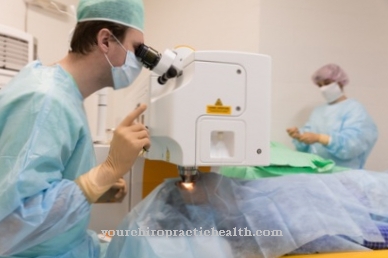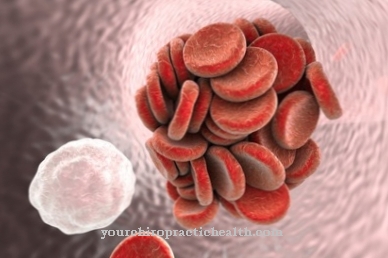The Antibody therapy belongs to the immunotherapies and is often used in cancer treatment. Antibody therapy uses man-made antibodies to treat certain diseases.
What is Antibody Therapy?

The Antibody therapy is based on the properties of antibodies, which support our immune system. Antibodies, also known as immunoglobulins, are an important part of the human immune system because they help to fight off foreign bodies that have entered the immune system and altered body structures.
Great advances have been made in antibody therapy in recent years. Above all, disease processes and the body's own defense mechanisms have now been better researched, which is why numerous new drugs for tailor-made antibody therapy have come onto the market.
Today, so-called monoclonal antibodies, which are artificially produced and each target different diseases, are mainly used in antibody therapy.
Function, effect & goals
Currently the Antibody therapy especially for cancer and autoimmune diseases as well as for chronic inflammatory bowel diseases. It contributes to an improved quality of life for patients and usually slows the progression of a disease. Depending on the application method, antibody therapy can be divided into different types.
In contrast to chemotherapy, the antibody therapies used in cancer treatment can protect healthy cells and specifically help the immune system to attack tumor cells. Cancer cells are "smart"; they are often not recognized as alien intruders by the immune system and destroyed. Antibody therapy helps identify tumor cells.
For example, some cancer antibody therapies trigger a defense reaction in the immune system. In this form of therapy, antibodies bind to the surface of the cancer cells and signal the immune system to destroy these tumor cells. Other antibodies manage to block receptors that are used to dock cancer cells. Still others seem to trigger a kind of suicide program in the tumor cells that die as a result of the antibody therapy.
Antibody therapies can therefore limit tumor growth. However, it does not yet seem possible to kill all tumor cells with antibody therapy alone. Therefore, doctors often combine chemotherapy with antibody therapy. Antibody therapies are particularly successful for breast cancer, some forms of lymph gland cancer and leukemia, and for colon cancer, usually in combination with chemotherapy. Antibody therapy clearly increases the effectiveness of chemotherapy.
Antibody therapy is also promising for autoimmune diseases such as rheumatism, ankylosing spondylitis or multiple sclerosis. In these diseases, the immune system attacks its own body. For example, rheumatoid arthritis and psoriatic arthritis are treated via infusions with antibodies. The effects of this antibody therapy last for about nine months, then another treatment is given.
In this type of antibody therapy, antibodies recognize the inflammatory messenger substances typical for these diseases and cause the immune system to fight these substances. In this way, they reduce the inflammatory activity and slow down processes that damage joints. As with cancer therapy, antibody therapy is administered as an infusion that lasts about two hours.
You can find your medication here
➔ Medicines to strengthen the defense and immune systemRisks, side effects & dangers
Generally one is Antibody therapy well tolerated and effective. Possible side effects, usually only with the first infusion, include allergic reactions, depending on the antibody used, be it milder reactions such as skin rash, nausea, slight shortness of breath or fever, or more severe ones such as flu-like symptoms, headache, chills or an allergic shock. To avoid these risks, patients are given medication before the infusion to prevent an allergic reaction.
However, some antibody therapies can also have more serious side effects, such as breast cancer therapy with the antibody trastuzumab, which can damage the heart. In general, because of the effect of antibodies on the immune system, antibody therapy increases the risk of infection in a patient or even the risk of developing cancer.
So-called opportunistic infections can occur in the course of therapy, e.g. Tuberculosis, or a dangerous brain disease caused by a virus. These infections can cause pathogens that are normally fought off by a healthy immune system to multiply. Pregnant women should not undergo antibody therapy because its effect on the unborn child has not yet been adequately researched.













.jpg)

.jpg)
.jpg)











.jpg)